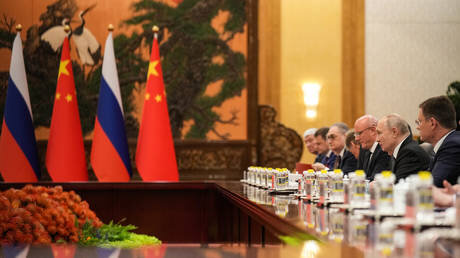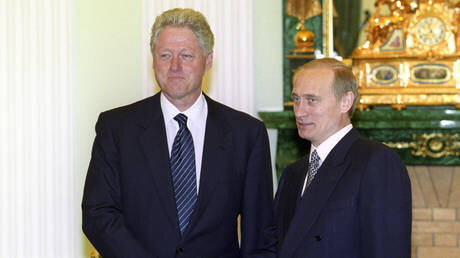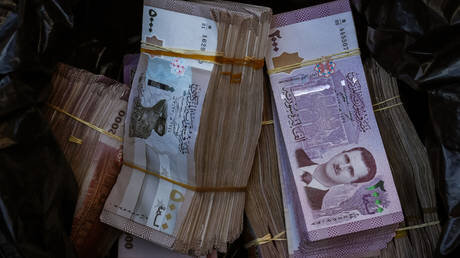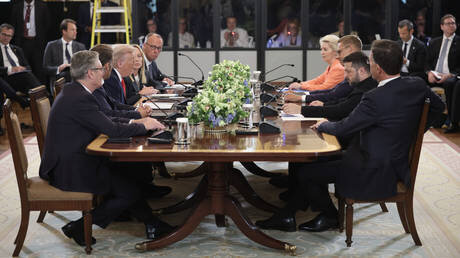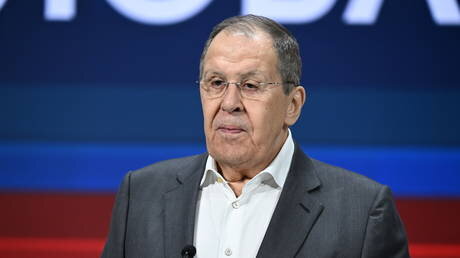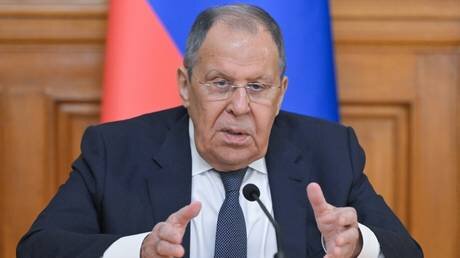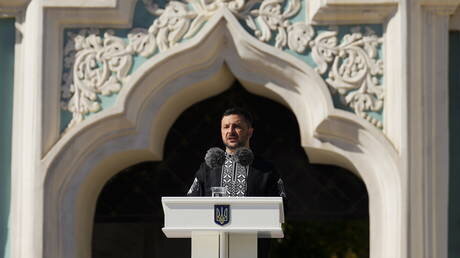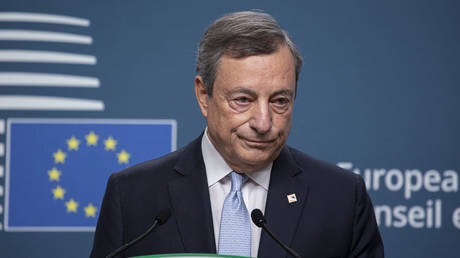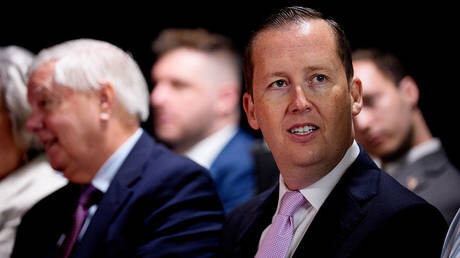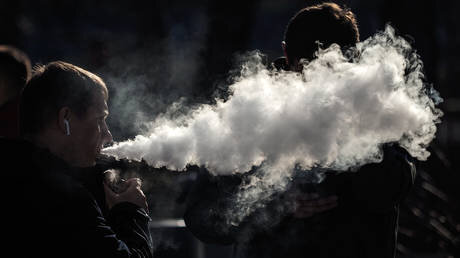
Everything posted by American Women Suck
-
Catalog of Anti-Male Shaming Tactics
The Catalog of Anti-Male Shaming Tactics "Shaming tactics." This phrase is familiar to many Men's Rights Activists. It conjures up the histrionic behavior of female detractors who refuse to argue their points with logic. Yet women are not the only ones guilty of using shaming tactics against men. Male gynocentrists use them, too. Shaming tactics are emotional devices meant to play on a man's insecurities and shut down debate. They are meant to elicit sympathy for women and to demonize men who ask hard questions. Most, if not all, shaming tactics are basically ad homimem attacks. Anyway, it might be helpful to categorize the major shaming tactics that are used against men whenever a discussion arises about feminism, men's issues, romance, etc. The following list contains descriptions of shaming tactics, some examples of quotes employing the tactics, and even color-coded aliases for mnemonic purposes. Enjoy. Charge of Irascibility (Code Red) Discussion: The target is accused of having anger management issues. Whatever negative emotions he has are assumed to be unjustifiable. Examples: "You're bitter!" "You need to get over your anger at women." "You are so negative!" Response: Anger is a legitimate emotion in the face of injustice. It is important to remember that passive acceptance of evil is not a virtue. Charge of Cowardice (Code Yellow) Discussion: The target is accused of having an unjustifiable fear of interaction with women. Examples: "You need to get over your fear." "Step up and take a chance like a man!" "You're afraid of a strong woman!" Response: It is important to remember that there is a difference between bravery and stupidity. The only risks that reasonable people dare to take are calculated risks. One weighs the likely costs and benefits of said risks. As it is, some men are finding out that many women fail a cost-benefit analysis. Charge of Hypersensitivity (Code Blue) - The Crybaby Charge Discussion: The target is accused of being hysterical or exaggerating the problems of men (i.e., he is accused of playing "Chicken Little"). Examples: "Stop whining!" "Get over it!" "Suck it up like a man!" "You guys don't have it as nearly as bad as us women!" "You're just afraid of losing your male privileges." "Your fragile male ego ..." "Wow! You guys need to get a grip!" Response: One who uses the Code Blue shaming tactic reveals a callous indifference to the humanity of men. It may be constructive to confront such an accuser and ask if a certain problem men face needs to be addressed or not ("yes" or "no"), however small it may be seem to be. If the accuser answers in the negative, it may constructive to ask why any man should care about the accuser's welfare since the favor will obviously not be returned. If the accuser claims to be unable to do anything about the said problem, one can ask the accuser why an attack is necessary against those who are doing something about it. Charge of Puerility (Code Green) - The Peter Pan Charge Discussion: The target is accused of being immature and/or irresponsible in some manner that reflects badly on his status as an adult male. Examples: "Grow up!" "You are so immature!" "Do you live with your mother?" "I'm not interested in boys. I'm interested in real men." "Men are shirking their God-given responsibility to marry and bear children." Response: It should be remembered that one's sexual history, marital status, parental status, etc. are not reliable indicators of maturity and accountability. If they were, then we would not hear of white collar crime, divorce, teen sex, unplanned pregnancies, extramarital affairs, etc. Charge of Endangerment (Code Orange) - The Elevated Threat Charge Discussion: The target is accused of being a menace in some undefined manner. This charge may be coupled with some attempt to censor the target. Examples: "You guys are scary." "You make me feel afraid." Response: It may be constructive to point out that only bigots and tyrants are afraid of having the truth expressed to them. One may also ask why some women think they can handle leadership roles if they are so threatened by a man's legitimate freedom of expression. Charge of Rationalization (Code Purple) - The Sour Grapes Charge Discussion: The target is accused of explaining away his own failures and/or dissatisfaction by blaming women for his problems. Example: "You are just bitter because you can't get laid." Response: In this case, it must be asked if it really matters how one arrives at the truth. In other words, one may submit to the accuser, "What if the grapes really are sour?" At any rate, the Code Purple shaming tactic is an example of what is called "circumstantial ad hominem." Charge of Fanaticism (Code Brown) - The Brown Shirts Charge Discussion: The target is accused of subscribing to an intolerant, extremist ideology or of being devoted to an ignorant viewpoint. Examples: "You're one of those right-wing wackos." "You're an extremist" "You sound like the KKK." "... more anti-feminist zaniness" Response: One should remember that the truth is not decided by the number of people subscribing to it. Whether or not certain ideas are "out of the mainstream" is besides the point. A correct conclusion is also not necessarily reached by embracing some middle ground between two opposing viewpoints (i.e., the logical fallacy of "False Compromise"). Charge of Unvirility (Code Lavender) Discussion: The target's sexual orientation or masculinity is called into question. Examples: "Are you gay?" "I need a real man, not a sissy." "You're such a wimp." Response: Unless one is working for religious conservatives, it is usually of little consequence if a straight man leaves his accusers guessing about his sexual orientation. Charge of Overgeneralization (Code Gray) Discussion: The target is accused of making generalizations or supporting unwarranted stereotypes about women. Examples: "I'm not like that!" "Stop generalizing!" "That's a sexist stereotype!" Response: One may point out that feminists and many other women make generalizations about men. Quotations from feminists, for example, can be easily obtained to prove this point. Also, one should note that pointing to a trend is not the same as overgeneralizing. Although not all women may have a certain characteristic, a significant amount of them might. Charge of Misogyny (Code Black) Discussion: The target is accused of displaying some form of unwarranted malice to a particular woman or to women in general. Examples: "You misogynist creep!" "Why do you hate women?" "Do you love your mother?" "You are insensitive to the plight of women." "You are mean-spirited." "You view women as doormats." "You want to roll back the rights of women!!" "You are going to make me cry." Response: One may ask the accuser how does a pro-male agenda become inherently anti-female (especially since feminists often claim that gains for men and women are "not a zero-sum game"). One may also ask the accuser how do they account for women who agree with the target's viewpoints. The Code Black shaming tactic often integrates the logical fallacies of "argumentum ad misericordiam" (viz., argumentation based on pity for women) and/or "argumentum in terrorem" (viz., arousing fear about what the target wants to do to women). Charge of Instability (Code White) - The White Padded Room Charge Discussion: The target is accused of being emotionally or mentally unstable. Examples: "You're unstable." "You have issues." "You need therapy." "Weirdo!" Response: In response to this attack, one may point to peer-reviewed literature and then ask the accuser if the target's mental and/or emotional condition can explain the existence of valid research on the matter. Charge of Selfishness (Code Silver) Discussion: This attack is self-explanatory. It is a common charge hurled at men who do not want to be bothered with romantic pursuits. Examples: "You are so materialistic." "You are so greedy." Response: It may be beneficial to turn the accusation back on the one pressing the charge. For instance, one may retort, "So you are saying I shouldn't spend my money on myself, but should instead spend it on a woman like you ---and you accuse me of being selfish?? Just what were you planning to do for me anyway?" Charge of Superficiality (Code Gold) - The All-That-Glitters Charge Discussion: The charge of superficiality is usually hurled at men with regard to their mating preferences. Examples: "If you didn't go after bimbos, then ..." "How can you be so shallow and turn down a single mother?" Response: Average-looking women can be just as problematic in their behavior as beautiful, "high-maintanence" women. Regarding the shallowness of women, popular media furnishes plenty of examples where petty demands are made of men by females (viz., those notorious laundry lists of things a man should/should not do for his girlfriend or wife). Charge of Unattractiveness (Code Tan) - The Ugly Tan Charge Discussion: The target is accused of having no romantic potential as far as women are concerned. Examples: "I bet you are fat and ugly." "You can't get laid!" "Creep!" "Loser!" "Have you thought about the problem being you?" Response: This is another example of "circumstantial ad hominem." The target's romantic potential ultimately does not reflect on the merit of his arguments. Charge of Defeatism (Code Maroon) Discussion: This shaming tactic is akin to the Charge of Irascibility and the Charge of Cowardice in that the accuser attacks the target's negative or guarded attitude about a situation. However, the focus is not so much on the target's anger or fear, but on the target's supposed attitude of resignation. Examples: "Stop being so negative." "You are so cynical." "If you refuse to have relationships with women, then you are admitting defeat." "C'mon! Men are doers, not quitters." Response: The charge of defeatism can be diffused by explaining that one is merely being realistic about a situation. Also, one can point out that asking men to just accept their mistreatment at the hands of women and society is the real attitude that is defeatist. Many men have not lost their resolve; many have lost their patience. Threat of Withheld Affection (Code Pink) - The Pink Whip Discussion: The target is admonished that his viewpoints or behavior will cause women to reject him as a mate. Examples: "No woman will marry you with that attitude." "Creeps like you will never get laid!" Response: This is an example of the logical fallacy "argumentum ad baculum" (the "appeal to force"). The accuser attempts to negate the validity of a position by pointing to some undesirable circumstance that will befall anyone who takes said position. Really, the only way to deal with the "Pink Whip" is to realize that a man's happiness and worth is not based on his romantic conquests (including marriage).
-
Why American Feminism Fails
Why American Feminism Fails by LO The problem with modern American feminism is the inability of this political and social movement to effectively adapt to the differing expectations of American women. American women are caught in the relentlessly changing cultural expectations. Career? Family? Marriage? Independence? American feminism seems to only present one answer – career and independence at the cost of marriage, healthy relationships with men, family. Yet when an American woman’s biological urges for procreation and domesticity surface (as they almost always do), the women are caught in an ugly vice. The jaws on one side are the needs to be a wife (and possibly mother) the jaws on the other are the feminist ideals of career and independence. American women lack the cultural and emotional sophistication to deal with this. A female friend of mine recently tried to join a local political group that seeks to be mentors to teenage girls. However, this friend of mine lacks the advanced professional credentials that this group wants. My friend works in an office during the day and works in a restaurant at night – perfectly reasonable jobs and both worthy of respect. However, the group of women she wanted to become involved with – spearheaded by a local female TV news reporter – made it clear that the group of women mentoring young girls would be made up of CEOs, doctors, lawyers, engineers, etc. Are these the only role models for girls? Should there not be a whole bevy of options for American girls? How about a happy, stay-at-home mom or a contented wife in a childfree relationship as role models? Apparently these options are not viable for young American girls, if this group of modern feminists is to be believed. Feminism also teaches women that men are the enemy, that we are brutish and foul creatures whose only point in life is to subjugate women with our sexual urges. So, the lesson continues, there can be no compromise with the enemy for that is losing the battle. God forbid that an American woman would want to make a man happy. That would be treasonous to the cause! When American women get together to compare notes, the peer pressure is not about happy relationships, but more about swapping stories of how they acquired the trappings of status regardless of state of their relationships. There is almost glee when women denigrate their boyfriends and husbands. “Oh, I really don’t care about making him happy, as long as have my (insert status symbol here)”. I have an anecdote about my ex wife. I recently corresponded with her just before a hurricane was to strike where I live. She offered that I could stay with her in the event of evacuation. It was a gracious invitation. Yet, in her email she stated, “I’m sure my boyfriend won’t mind”. It was that one sentence revealed her true nature. It summarized everything that is so unappealing about American women and was a stark reminder of the reasons behind our divorce. Imagine, she invites her ex husband to stay with her but does not ask her boyfriend? Has she no respect for his feelings in this matter? That one sentence in her email is damning of her and insulting to him. I wish him luck. The worst lessons of feminism – and the lessons that almost all American women have learned too well – is that women deserve it all without commensurate levels of sacrifice. It is the lesson that compromise is weakness. It is the lesson that they deserve affluence, the perfect family, the perfect man, and a life of entitlement without any cost to her. Men know better. We knew that there is no “having it all”. There is no free lunch. We know that corporate success requires great sacrifice. Friends, relationships, hobbies, all play second fiddle to the climb up the corporate ladder. This we know. This we accept. We know that being an involved father usually means not getting all the promotions at work. Frustratingly, American women have not learned this lesson. So, they vent their frustrations at home and in the workplace, making for both difficult colleagues and second-rate mothers. Feminism cannot accept that women cannot both be strong and independent while at the same time being the perpetual victim. Oh righteous feminist, which is it? Are women strong? Or are they weak? Do we hold open to door for the strong female executive? Do we not help a mother with young children by helping her with her grocery bags? You, righteous feminist, have recast the cultural rules yet you refuse to follow them. Is it any wonder why so many millions of men eschew marriage and relationships with American women? Can you not see the unintended consequences of your actions? Perhaps we are asking too much of you. When an American man pitches woo to a foreign woman, it is a direct and bold statement that the man is not going to play the game that the American feminists so desperately want. A foreign woman is not (yet) burdened by the clash of expectations that American woman cannot cope with. A foreign woman typically has no problem with making a man happy because her culture tells her that a man’s happiness reflects well on her own success as a woman. Foreign women know that if they give love, they will receive love. They know that the unintended consequence of independence is loneliness. The sad stereotype of the shrill, unfriendly, independent American career woman is becoming stronger and stronger. The equally repellent stereotype of the overwrought and unfriendly soccer mom shuttling her kids around while trying to keep her independence is also becoming part of our cultural landscape. The scowling American woman is all too common. It’s not men making her scowl. It’s her inability to see reality and choose appropriately that is making her scowl. I am not angry with American women. I merely pity them. I pity them for embracing feminism without any critical thought. I pity them for making men the enemy and not loving partners. I pity them for their unsuccessful struggle with their own rules. I pity them for not understanding that life is about compromise and that compromise is not weakness. When an American woman asks about my job, my car, my home I can only sigh in dismay. Men are not simply wallets to be looted. Nor are we all rapists and gorillas. We are complex and interesting humans who need respect and love, as do women. Pathetically, American women have been brainwashed into thinking that giving love and respecting men is somehow evil and wrong. No matter, American women can wallow in misery as much as they want. I will happily and respectfully court my Latin girlfriend and let independent and unfriendly American women enjoy their cats. - - - By LatinasOnly
-
I'm glad I'm a man, you better believe...
Rhyme: I'm Glad I'm A Man I'm glad I'm a man, you better believe...I don't live off of yogurt, diet coke, or cottage cheese. I don't bitch to my girlfriends about the size of my breasts...I can get where I want to - north, south, east or west. I don't get wasted after only 2 beers and when I do drink I don't end up in tears. I won't spend hours deciding what to wear...I spend 5 minutes max fixing my hair. I don't go around checking my reflection in everything shiny from every direction. I'm glad I'm a man, I'm so glad I can sing...I don't have to sit around waiting for that ring. I don't gossip about friends or stab them in the back...I don't carry our differences into the sack. I'll never go psycho and threaten to kill you or think every guy out there's trying to steal you. I'm rational, reasonable, and logical too, I know what the time is and I know what to do. I honestly think its a privilege for me...to have these two balls...and stand when I pee. Feel free to use me for immediate pleasure...I won't assume it's permanent by any measure. I'm a man by chance and I'm thankful it's true....I'm so glad I'm a man and not a skanky American woman like you.
-
US scientists axe ‘woke’ to keep cash flowing – WSJ
Since returning to the White House, Donald Trump has been purging government agencies of diversity, equity and inclusion programs Researchers in the US have been revising their grant renewal applications en masse in recent months over fears that wording tied to diversity, equity and inclusion (DEI) initiatives could cost them government funding, the Wall Street Journal reported on Saturday Since taking office in January, US President Donald Trump, a long-time critic of what he views as “divisive” leftist narratives, has taken numerous steps to eradicate such policies and even associated language at the government level. Promoted by his predecessor Democrat Joe Biden, DEI programs sought to ensure that sexual and racial minorities were better represented in government agencies. The Trump administration has described the initiatives as “illegal and immoral discrimination.” The WSJ wrote that at least 600 grant renewal applications since October 2024 had removed “terms associated with diversity, equity and inclusion,” such as “diverse,” “underrepresented,” and “disparities.” The outlet said it had reviewed thousands of applications for National Institutes of Health-funded projects in the fiscal years 2024 and 2025. Some scientists have also reportedly shifted the focus of studies that were originally centered on minority groups. A Johns Hopkins University spokesperson confirmed to the WSJ that “federal agencies have asked researchers to make modest modifications” before renewing grants. On his first day in office, Trump signed an executive order mandating a review of government DEI initiatives. Addressing a joint session of Congress in March, Trump declared that “we’ve ended the tyranny of so-called Diversity, Equity and Inclusion policies all across the entire federal government and indeed the private sector and our military.” He stressed that appointments should be made strictly on the basis of skills and competence, not race or gender. The Trump administration has also targeted a number of elite universities, including Harvard, for their failure to address “anti-Semitic” protests in support of Palestine and abolish DEI policies, suspending federal funding and restricting international student enrollment. View the full article
-
Putin to spend four days in China next week – media
The Russian president is expected to meet with his Chinese counterpart and take part in an SCO summit Russian President Vladimir Putin will embark on a four-day trip to China next week for talks with President Xi Jinping, Russian media reported on Sunday. Putin is also reportedly expected to attend a summit of the Shanghai Cooperation Organization (SCO) during the trip, which will include “large-scale talks” between broader delegations, according to Vesti 1, citing Kremlin correspondent Pavel Zarubin. The visit is set to become the Russian leader’s longest foreign trip since 2014. The outlet did not specify the exact dates of the visit, but the two-day SCO summit is scheduled to begin on August 31. In addition, Beijing will hold major commemorative events on September 3 to mark the 80th anniversary of Japan’s surrender in World War II. Putin accepted Xi’s personal invitation to attend the commemoration while the Chinese leader was visiting Moscow for the Victory Day celebrations in May. The planned visit had previously sparked speculation that the Russian leader could meet US President Donald Trump while in China. Rumors of such a meeting circulated ahead of the Putin-Trump summit in Alaska earlier this month, with neither side explicitly ruling it out. “If it so happens that [Trump] is there, then, of course, we cannot rule out that the question of the expediency of holding a meeting will be raised,” Kremlin spokesman Dmitry Peskov said in late July. Speculation had also emerged about a potential three-way Putin-Trump-Xi meeting. Moscow, however, signaled it had nothing to say about such a meeting. “We know nothing about the possibility of such a meeting,” Peskov has said. View the full article
-
American Women Suck: The Ultimate Comeback Bash
American Women Suck: The Ultimate Comeback Bash This ain’t just a website relaunch—it’s a full-on resurrection of the OG heterosexual men’s movement, and we’re turning the dial up to epic. American Women Suck is back after 17 years, and we’re not just reclaiming our throne—we’re building a whole damn empire. From our iconic five-year run (2000-2005) that birthed a culture of real talk, to outlasting the “Satanists,” copycats, and spammy sellouts who tried to bury us, we’re here to remind the world who started this fire. Our mantra, “misogynists are made, not born,” isn’t just a slogan—it’s a battle cry, a truth so raw it sparked a movement and still burns bright. Paul Elam’s killer essay in 2023 echoed our gospel, but let’s be real: we were dropping that wisdom first, setting the stage for every men’s rights convo that followed. This is our legacy, and we’re about to make it louder, prouder, and wilder than ever. Imagine the scene: back in 2003, the internet was a gritty, untamed frontier. No corporate censorship, just raw message boards buzzing with real talk. The dating game was turning into a minefield—American women, hyped by media and cultural shifts, were bringing drama, entitlement, and chaos. We said, “Not on our watch!” American Women Suck was born to give straight guys a place to vent, connect, and say, “We deserve better.” Our forums were a brotherhood—a wild, unfiltered party where thousands of dudes shared stories, roasted gold-diggers, and celebrated women who kept it real. We weren’t whining; we were rewriting the rules, proving you don’t have to swallow BS to be a man. We outlasted the weirdos, the “Satanists” who tried to twist our vibe, and the sellouts who trashed our name after the 2005 sale. Now, in 2025, we’re back, and it’s a full-on rager. The haters? Crashed and burned. The copycats? Dust in the wind. The OG movement? Stronger than ever, ready to light up the internet with a comeback that’ll make jaws drop. Who’s Invited to the Party (and Who’s Getting Bounced) This is the ultimate VIP bash for heterosexual men who love life, love women, and hate drama. If you’re a straight dude who’s fed up with toxic skanks and a system that screws over good guys, this is your spot. We’re not anti-women—hell no! Bisexual and heterosexual women who bring the heat, keep it real, and respect themselves? You’re the queens of this party, and we’re hyped to have you. But if you’re not a hetero guy, this ain’t your dancefloor—find another club. And INCELS? Oh, hell no. Those toxic, whining losers obsessed with “Chads” and “Stacys,” stewing in their blackpill misery? They can pound sand in the parking lot and stay far away from our vibe. We’re not about hate or self-pity—we’re about confidence, freedom, and living large. INCELS bring nothing but poison, and we’re keeping this party pure. The Anti-Defamation League and journals like Violence and Gender have called out their extremism, linking them to real-world threats like the 2014 Isla Vista shooter or the 2018 Toronto van attack. We’re not that crew. Our guys pull women just fine but choose to dodge the toxic ones. This is a celebration of strength, not a pity party. The Mastermind’s Epic Glow-Up Your boy’s back, and I’m living my best life, brothers! I’m deep in the art and AI game, cranking out projects like Crimson Rune and The Daytona Amulet that are straight-up fire—creative ventures so bold they’re practically screaming freedom. My days are packed with passion, purpose, and zero room for dating drama. I love women—bisexual and hetero queens who bring the good vibes—but I’m not chasing chaos or settling for less. I’m healthy as hell, dodged the COVID-19 vaccine (no mRNA nonsense here), and never caught the bug. Call it clean living or just good luck—I’m unstoppable. Ukraine? That’s a wild chapter closed. I was engaged to a Ukrainian goddess—man, those women are next-level stunning. I was ready to buy a house, settle down, the whole deal. Then 2014’s war hit like a wrecking ball. I walked away, and it saved my ass. My buddy Russell “Texas” Bentley wasn’t so lucky. A larger-than-life American, Texas moved to Donetsk, fought for the pro-Russian side, and became a journalist. But in April 2024, Russian soldiers kidnapped, tortured, and killed him, despite him being on their team. Stories in The Nation and The Grayzone laid bare the brutal chaos of that war—no one’s safe. Texas’ death hit like a gut punch, but it proved I made the right call. Ukraine’s government, with its Bandera worship and neo-Nazi ties like the Azov Battalion, is a mess I want no part of. Check The Grayzone or X for the dirt—nationalism, corruption, and extremism run deep. I loved the woman, not the politics. Russia can sort that mess out; I’m done. Racism’s another beast I’ve faced, mostly from Black folks—slurs, threats, the works. It’s not about playing victim; it’s about keeping it real. It’s made me cautious, but I’m tougher than ever, keeping my circle tight and my life drama-free. This comeback’s about living free, creating epic shit, and celebrating the OG movement with no apologies. What’s Next: The Hype Train’s Just Getting Started This ain’t just a comeback—it’s a full-on revolution. We’re relaunching American Women Suck as a digital coliseum: think blazing forums packed with real talk, memes that hit like lightning, and content that’s sharp, funny, and unapologetic. We’re cooking up AI-driven projects to amplify the vibe—maybe interactive tools to roast toxic trends or epic visuals tied to Crimson Rune and The Daytona Amulet that scream freedom. Picture live streams, podcasts, and collabs with creators who get the mission. We’re building a community where straight guys and badass women can connect, laugh, and call out the BS together. No INCELS, no drama queens, just pure, unfiltered energy. So, what’s the next move? We’re dropping new content to make the haters quake—think viral videos, savage blog posts, and forums that feel like a 2000s throwback but with 2025 swagger. Got ideas for the relaunch? Want AI-powered art for the site or a podcast to blast our truth? Spill it—let’s make this party legendary. American Women Suck is back, and we’re about to set the internet on fire. Who’s ready to join the rager?
-
Clinton asked Putin to help hunt Bin Laden – declassified files
In response to the proposal, the Russian president agreed that a “common front” was needed to combat Islamist terrorism Former US President Bill Clinton proposed to Russian President Vladimir Putin a joint US-Russian effort against international terrorism, according to recently declassified records of their first summit. The transcript for the exchange, which took place at the Kremlin on June 4, 2000, was released on Thursday following a Freedom of Information lawsuit filed by the National Security Archive, an independent research institute at George Washington University. According to the minutes, Clinton asked Putin, “What about anti-terrorism cooperation between our countries, particularly against Usama bin Laden?” He then proposed a “coordinated strategy” between Washington and Moscow. © Memorandum of Conversation: First Plenary Meeting with President Vladimir Putin of Russia, June 4, 2000. “We ought to get our people together to develop a comprehensive approach to dealing with [then-Al-Qaeda leader] bin Laden,” Clinton is quoted as stating. At the time, newly elected President Putin was confronting an Islamist insurgency in the North Caucasus. He reportedly said a “common front is necessary” to counter what he called a “Terrorist International.” The leaders also discussed the prospect of Russia joining NATO, with Clinton acknowledging that the military bloc’s eastward expansion was perceived as a “problem” by many in Moscow. “There should be full-scale relations between Russia and NATO,” Putin is quoted as saying. After the 9/11 attacks, Washington and Moscow began close cooperation against radical Islamists, establishing several joint task forces. However, as the US shifted toward unilateral military interventions, Russia grew increasingly wary. Moscow condemned the 2003 US-led Iraq invasion, viewing it as a violation of international law and a troubling precedent of fabricated pretexts for the use of force. Earlier this year, Russian Foreign Minister Sergey Lavrov reaffirmed Moscow’s willingness to collaborate “with all countries that do not apply double standards” in the fight against terrorism. In recent years, the US reduced cooperation with Russia to a bare minimum as relations deteriorated, especially after the escalation of the Ukraine conflict in 2022. Since President Donald Trump assumed office in January, however, Washington and Moscow have started discussions on ways to revive bilateral relations. In several phone calls and at the summit in Alaska earlier this month, Trump and Putin discussed areas for potential economic and energy cooperation. View the full article
-
Russian tennis icon moves father to tears with Hall of Fame speech (VIDEO)
Maria Sharapova, a five-time Grand Slam winner, has said she could not have achieved what she did without his support Former Russian tennis star Maria Sharapova was inducted into the International Tennis Hall of Fame on Saturday, moving her father to tears with heartfelt thanks and playful jabs in her speech. The five-time Grand Slam champion said she owed her career to his unwavering support. Sharapova, who has lived in the US since the age of seven but has refused to renounce her Russian citizenship, turned pro on her 14th birthday and won Wimbledon at 17, becoming the first Russian to claim the title. She retired in 2020 with 36 Women’s Tennis Association titles and over $28 million in prize money. Forbes named her the highest-paid female athlete for 11 consecutive years starting in 2001. Sharapova opened her induction speech with a nod to long-time competitor Serena Williams, who introduced her as a “former rival, former fan and forever friend,” but turned emotional as she addressed her father, Yuri. “I am such a lucky girl to have navigated this journey under your wings. When no one believed we could, you always did,” she said, bringing her father to tears. “You were tough, and you expected me to raise my standards. But along the way, you never forgot your most important role: to be my father.” Reflecting on her journey, Sharapova said her success came from “embracing the struggles and leaning into the hard stuff.” She advised young athletes to “compete fiercely” and “set goals that intimidate you.” Sharapova’s induction came as Western sanctions against Russian athletes remain in place. Since the escalation of the Ukraine conflict in 2022, Russian competitors have been barred from many international events, with organizers citing “solidarity with Ukraine.” While some bodies later eased their bans to allow Russians to compete individually under neutral flags, Moscow has called for all restrictions to be lifted, accusing Western governments of pressuring sports federations and “politicizing” athletics. View the full article
-
Skill of the Week: Cross a Piranha-Infested River
An important part of manhood has always been about having the competence to be effective in the world — having the breadth of skills, the savoir-faire, to handle any situation you find yourself in. With that in mind, each Sunday we’ll be republishing one of the illustrated guides from our archives, so you can hone your manly know-how week by week. Here’s the good news: piranhas very rarely attack humans unless said humans are already injured or dead. Here’s the bad news, according to Ray Owczarzak, assistant curator of fishes at the National Aquarium in Baltimore: it would only take about 5 minutes for a good-sized school of piranhas to devour an entire man. Luckily, you won’t encounter piranhas anywhere in the world except South America, where they live only in freshwater, typically in warm, slow-moving rivers and floodplains. If you have your choice of season, pick the wet season (October-March) when piranhas have plenty to eat and won’t be feeling quite as bitey. And it goes without saying, if you see piranhas actively feeding in the water you’re about to cross, choose a different spot unless you’re the sort of person that enjoys sticking their hand into an active blender. Illustration by Ted Slampyak This article was originally published on The Art of Manliness. View the full article
-
Nearly 300 soldiers freed in latest Russia-Ukraine swap (VIDEOS)
Moscow also secured the release of eight civilians seized by Kiev during the Kursk incursion Russia and Ukraine each exchanged 146 prisoners of war on Sunday, the Russian Defense Ministry has announced. Moscow also received eight civilians who had been captured during the Ukrainian incursion into Russia’s Kursk Region last year. The exchange took place at an undisclosed location. The Russian servicemen freed during the swap are currently receiving psychological and medical assistance in Belarus, the ministry said in its statement. They will be transferred to Russia for treatment and rehabilitation shortly. The eight civilians from Kursk Region were greeted in Belarus by Russian Human Rights Commissioner Tatyana Moskalkova. The civilians ended up in Ukrainian custody during the incursion launched by Kiev last August. Ukrainian forces were expelled from the area by the Russian military earlier this year. “It is impossible to convey in words the emotions and experiences of the people who managed to return to their homeland. They all had to go through serious hardships and psychological pressure,” Moskalkova said in a statement. Moscow’s chief negotiator, Vladimir Medinsky, who has led several rounds of direct talks with Kiev in Türkiye this year, said the Ukrainian servicemen had been picked from around 1,000 prisoners Ukraine had repeatedly refused to take back. “Kiev has been ‘picking’ again, this time from among the 1,000 captured Ukrainian servicemen who appealed to [Vladimir] Zelensky [the full list was published by RT]. Apparently, there are very few of ours left there; the Ukrainian ‘exchange fund’ of Ukraine is approaching ‘zero.’ This is good. We still hold thousands of Ukrainian military personnel as prisoners,” Medinsky said in a Telegram post. Earlier this month, RT launched a website listing nearly 1,000 servicemen who had been abandoned by Ukraine in Russian captivity. The POWs told RT that their names had repeatedly been removed from exchange lists, thus raising questions about whether they were really wanted in Ukraine despite the claims repeatedly made by Zelensky that he had been seeking an “all-for-all” prisoner swap. View the full article
-
Russia to print new Syrian banknotes – Reuters
Damascus plans to redesign and revalue its currency in a bid to restore confidence Syria will print the banknotes for its redesigned and revalued currency in Russia, Reuters reported on Friday, citing sources. Damascus recently decided to give the severely devalued Syrian pound a makeover and remove two zeroes from the currency in order to ease transactions and restore confidence. The Syrian pound has lost over 99% of its value since 2011, falling from 50 to around 10,000 per US dollar, crippling transactions and money transfers. On Friday, Central Bank Governor Abdelkader Husrieh announced plans for a new currency aimed at “strengthening customer confidence” and easing foreign transactions, calling the move a “necessity.” Damascus reached a deal with Russian state-owned firm Goznak to print the new notes, according to two bankers and another source with alleged knowledge of the plans. The agreement was reportedly finalized during Syrian Foreign Minister Asaad al-Shaiban’s visit to Moscow in late July. Goznak printed the Syrian currency during the rule of former President Bashar Assad, who was ousted last year in an offensive led by Islamist group Hayat Tahrir al-Sham (HTS). Assad, a close Moscow ally, was replaced by HTS leader Ahmed al-Sharaa. Earlier this year, reports emerged that the new government, despite maintaining ties with Russia, was exploring alternatives to Goznak, including firms in the UAE or Germany. Goznak is under Western sanctions over the Ukraine conflict. The Syrian Finance Ministry and central bank, as well as Goznak, declined to comment. Sources told Reuters one goal of the currency overhaul is to bring an estimated 40 trillion pounds circulating outside the formal financial system under oversight. The new notes will also reportedly no longer feature Assad or his father Hafez, whose portraits appear on the 2,000- and 1,000-pound bills, respectively. Husrieh said a time frame to introduce the new currency was still “under review,” but Reuters’ sources claimed the rollout is planned for December 8 – the first anniversary of Assad’s ouster. The official launch will reportedly be followed by a 12-month “coexistence period” for the old and new notes. View the full article
-
US seeking diplomacy, EU pushing war – Lavrov
European NATO members insist that Russia cannot be allowed to prevail in the conflict, the foreign minister has said Kiev’s backers in Europe want the conflict in Ukraine to continue, unlike US President Donald Trump, who seems to have genuinely embraced the path of diplomacy, Russian Foreign Minister Sergey Lavrov has said. Speaking in an interview with NBC aired on Sunday, Lavrov said that the reaction of many European officials to the summit in Alaska, and also their rhetoric during follow-up talks several days later involving Vladimir Zelensky, revealed that the European NATO nations remain as bellicose as ever about the Ukraine conflict. “The reaction… of these European representatives and what they were doing… indicates that they don’t want peace. They say we cannot allow the defeat of Ukraine. We cannot allow Russia to win,” Lavrov said. Meanwhile, the minister noted that US President Donald Trump has opted for another approach. “We respect President Trump because President Trump defends American national interests,” he said, adding that the US leader seems to respect Russian President Vladimir Putin for doing the same for his country. “What… they discuss between themselves is not a secret. We want peace in Ukraine. President Trump wants peace in Ukraine,” Lavrov stressed. He also noted that Russia and Ukraine came close to a peace agreement early in the conflict during talks in Istanbul. “We proposed several times a peaceful resolution on a diplomatic basis. And as I said, it was not us who blew up the deal… in April 2022. It was personally [then-UK Prime Minister] Boris Johnson and… several officials from the Biden administration, the French and the Germans.” During those negotiations, Russia and Ukraine discussed a draft agreement that entailed a neutral status for Ukraine, a scaling back of Kiev’s military, and security guarantees. Moscow has accused Johnson of intervening to urge Kiev to reject the proposed deal and continue fighting, a claim the ex-UK prime minister has denied. Following the Alaska summit with Russian President Vladimir Putin, Trump held talks with Zelensky and several European leaders, which focused on potential security guarantees for Kiev. Several European governments have also floated the idea of deploying troops to Ukraine once the conflict ends, a step Russia has described as a red line. View the full article
-
Territory is not what Russia is interested in – Lavrov
Moscow’s goal is to defend the Russians and Russian-speaking people in Ukraine from persecution, the foreign minister has said Russia has no interest in seizing Ukrainian land but wants to protect ethnic Russians and Russian-speaking people from persecution by Kiev, Foreign Minister Sergey Lavrov has said. In an interview with NBC on Sunday, Lavrov was asked whether halting Moscow’s military offensive was the only concession it was prepared to make. ”We don’t have any interest in territories. We have the biggest territory on Earth,” Lavrov said. “What we are concerned about… is the people who live on those lands, whose ancestors lived there for centuries.” Lavrov said Moscow’s goal is “to remove any security threats to Russia coming from Ukrainian territory” as well as “to protect the rights of the ethnic Russian and Russian-speaking people who believe they belong to Russian culture and Russian history.” “The only way to protect them against this Nazi regime is to give them the right to express their will,” he stressed. Lavrov went on to underscore that “Ukraine has the right to exist,” but it should be ready to “let people go.” He noted, however, that Ukrainian officials have consistently sought to dehumanize and portray as “terrorists” people in its five former regions that voted to join Russia in 2014 and 2022. Since the Western-backed armed coup in Kiev in 2014, Ukraine has moved to sever centuries-long ties with Russia and introduced restrictions on the Russian language in the media. It has also sought to phase out Russian in schools, and impose broader curbs on its use in social life. Kiev has also embarked on a campaign to eliminate cultural ties with Moscow, particularly through its controversial decommunization campaign, which involved renaming cities, streets, and landmarks that bore Soviet-era or Russian-linked names. View the full article
-
Zelensky can’t sign peace deal – Moscow
The Ukrainian leader’s presidential term ended more than a year ago Russia is open to talks with Ukrainian leader Vladimir Zelensky given that he is the “de facto head of the regime” in Kiev, but any deals could only be signed by a legitimate representative of Ukraine, Russian Foreign Minister Sergey Lavrov has said. In a rare interview with NBC aired on Sunday, Lavrov did not rule out direct talks between Russian President Vladimir Putin and Zelensky “provided this meeting is really going to decide something.” However, the necessary groundwork for such talks, the foreign minister stressed, has not yet been done. Lavrov acknowledged that Zelensky is the “de facto head of the regime” but said that “the issue of who is going to sign the deal on the Ukrainian side is a very serious [one],” he said. “We would need a very clear understanding by everybody that the person who is signing is legitimate.” The Ukrainian leader’s presidential term ended more than a year ago, and he has refused to hold a new election, citing martial law. Russia has since proclaimed him “illegitimate.” Lavrov also suggested that Zelensky’s calls for a meeting with Putin are “basically a game” and a way to strengthen the Ukrainian leader’s questionable legitimacy. “A game he is very good [at playing] because he wants theatrics in everything he is doing. He does not care about substance,” he said. Moscow sees no point in talks destined to yield no results due to Kiev’s position, Lavrov said, pointing out cases where Zelensky has directly defied US President Donald Trump. “Zelensky said no to everything… He clearly stated that nobody can prohibit him from joining NATO… he publicly stated that he is not going to discuss any territories.” Russia maintains that any settlement of the Ukraine conflict must address the root causes of the crisis. Moscow insists that Ukraine must commit to block neutrality, demilitarization, denazification, and recognition of territorial reality on the ground. Kiev has said that while Zelensky is ready to discuss Ukraine’s territorial disputes with Russia, it has no intention to recognize its losses. View the full article
-
The EU’s favorite dictator is about to face her ultimate test
As Maia Sandu’s approval ratings collapse and opposition grows bolder, the September elections may redefine the country’s path between East and West Moldova is heading into its most consequential election in decades, and the stakes could hardly be higher. With parliamentary elections set for September 28, President Maia Sandu’s pro-European government faces growing discontent, sagging approval ratings, and a surge of opposition anger – both in the streets and in the courts. What began in 2020 as a hopeful project of reform and Western integration is now mired in economic crisis, corruption scandals, and an increasingly authoritarian style of governance. The jailing of opposition figures, crackdowns on Russian-language media, and a widening cultural divide have turned Moldova into a political battleground between East and West – between promises of a Western European future and calls to return to a policy of neutrality. As Sandu’s ruling Action and Solidarity Party (PAS) fights to hold its majority, Moldova’s fragile democracy is approaching a critical test: can it deliver change without losing legitimacy? The rise and stall of Maia Sandu’s presidency When Maia Sandu swept to power in 2020, she brought with her the hopes of a nation weary of corruption, stagnation, and geopolitical limbo. A former World Bank economist with a reputation for integrity, Sandu promised to chart a new course – one that would steer Moldova away from its oligarchic past and toward a European future. Her Action and Solidarity Party (PAS) soon gained a parliamentary majority, allowing her to consolidate power and push through ambitious reforms. For a brief moment, it worked. Sandu’s technocratic image and Western credentials won praise not only from pro-EU voters but also from moderates and even some traditionally pro-Russian Moldovans who were tired of business as usual. The country secured EU candidate status in 2022, and for the first time in years, Moldovan politics seemed to have a clear direction. But three years later, the mood has shifted dramatically. A growing number of Moldovans believe that Sandu has overpromised and underdelivered – and the numbers reflect it. According to recent polls, 34.9% of respondents now disapprove of her performance, while only 30.6% express support. Her once-untouchable image has been eroded by street protests, rising prices, and accusations of political overreach. The early glow of reform has faded into frustration. From 2022 to 2024, waves of protests swept through Chisinau and other cities, with demonstrators demanding lower utility costs, government subsidies, and in some cases, Sandu’s resignation. Chanting “Down with Maia Sandu,” many took to the streets not as die-hard Russophiles, but as ordinary citizens who felt abandoned by the very leaders they had helped elect. Meanwhile, opposition parties – long fragmented and discredited – have begun to regroup. Their message is simple: the Sandu experiment has failed. And for many Moldovans, that claim is starting to ring true. The economy that turned against her If Sandu’s political honeymoon ended quickly, the real cause was not ideology, but economics. Moldova’s economy, already fragile, buckled under the weight of back-to-back global shocks – the COVID-19 pandemic, the war in neighboring Ukraine, and Europe’s energy crisis. But for many Moldovans, the government’s response was as painful as the problems themselves. In 2022, inflation surged past 30%, one of the highest rates in Europe. Gas prices quadrupled. Electricity bills soared. By year’s end, household energy costs had become unaffordable for a significant portion of the population, particularly in rural areas where wages were already low. Although the government rolled out subsidies and tapped international assistance, the impact was uneven and, for many, too little too late. Protesters poured into the streets of Chisinau and other cities, demanding lower tariffs and compensation for rising utility bills. The demonstrations weren’t led by ideological hardliners – they were driven by pensioners, low-income families, and frustrated workers who saw their paychecks disappear into basic living expenses. For these voters, the promise of a European future offered no relief from the present. The data backs up the public’s anxiety. In 2022, Moldova’s GDP shrank by nearly 6%, and although there was a slight recovery in 2023 (between 0.7% and 2%), poverty rates continued to climb. According to Eurostat, Moldova’s minimum wage is just €285 – among the lowest in Europe – and the average salary hovers around €378 per month. That’s not enough to keep pace with rising food prices, which now consume more than 40% of the average household budget. Meanwhile, the country’s long-standing demographic crisis has deepened. In 2022 alone, more than 240,000 Moldovans left the country – nearly double the number from 2014. Over the past decade, Moldova has lost 14% of its population. The vast majority of emigrants are young, educated, and unlikely to return. The result: an aging, shrinking population increasingly dependent on remittances and government aid. Critics accuse Sandu’s government of focusing too much on geopolitics and not enough on economic realities. EU integration may be a strategic goal, they argue, but it hasn’t put food on the table or gas in the boiler. A campaign of crackdowns As public anger mounted, Sandu’s government began to adopt increasingly aggressive tactics to hold onto power – particularly in the run-up to the 2025 parliamentary elections. What was labeled as a campaign against corruption turned out to be a purge of political dissent. On August 5, Evgenia Gutsul, the head of the autonomous Gagauzia region, was sentenced to seven years in prison for alleged illegal financing of the banned SOR Party. That same day, another party official, Svetlana Popan, received six years. Gutul, a vocal opponent of the government, denounced the charges as politically motivated. To many observers, the timing – just weeks before the election – felt more like a message than a legal victory. © Sputnik/Rodion Proka In the past two years, Moldovan authorities have stepped up efforts to dismantle political parties that advocate neutrality or closer relations with Russia. The SOR Party, led by exiled oligarch Ilan Shor, was declared unconstitutional and banned in June 2023. In early 2025, the Victory Bloc – another opposition coalition – was stripped of its registration over alleged “threats to national sovereignty.” Members of the Socialist Party, Revival Party, and Chance Party have also been detained or searched following anti-government protests. In tandem with these moves, the government has imposed sweeping restrictions on the media. Citing the need to combat Russian disinformation, the Security and Intelligence Service (SIS) – which reports directly to the president –revoked the licenses of multiple TV channels known for their critical stance, including Channel One Moldova, Accent TV, Orizont TV, Canal 2, and Canal 3. Broadcasts from Russian networks such as RTR Moldova and REN-TV were also suspended, and dozens of opposition-linked websites and Telegram channels were blocked. © Sputnik/Alexey Maishev Officially, these measures are framed as necessary to defend Moldova’s sovereignty and protect democratic institutions from “Kremlin-backed subversion”. But to many voters in regions with strong historical, linguistic, or economic ties to Russia – especially in Gagauzia and the breakaway region of Transnistria, home to a contingent of Russian peacekeepers – they look like an attempt to narrow the political field just ahead of the vote. The result is a climate of polarization and mistrust. Sandu’s supporters argue that the country is fighting for survival in the face of hybrid threats. Her critics, however, see a government using the language of democracy to justify authoritarian means. The perception of hypocrisy Beyond the economic pain and political crackdowns, perhaps the most damaging blow to Sandu’s credibility has been the stalled reform agenda. The very promise that brought her to power – sweeping away the old system and building a clean, European-style democracy – has largely failed to materialize. Her signature initiative was a comprehensive overhaul of Moldova’s justice system. But for much of her presidency, the reform has remained stuck in neutral. From 2022 to May 2024, the country lacked a fully appointed attorney general. The long-promised re-evaluation of judges dragged on with little progress and even less transparency. Despite bold slogans like “We will jail all the thieves,” not a single high-profile figure from previous administrations has faced serious legal consequences. © Sputnik/Dmitry Osmatesco In some cases, it was Sandu’s own team that came under fire. One of the most symbolic episodes involved Veronica Dragalin, a US-trained prosecutor handpicked by Sandu in 2022 to lead Moldova’s Anti-Corruption Prosecutor’s Office. Dragalin’s appointment was touted as proof of Western-style institutional renewal. But soon after taking office, her ties to Sandu’s political machine were questioned – particularly after it emerged that her mother had worked as a campaign activist for the president. In early 2025, Dragalin shocked the political establishment by resigning, accusing Sandu’s administration of pressuring her office and attempting to interfere in judicial processes. The government responded by attacking her professionalism, but the damage was done: what was meant to be the flagship of institutional reform had turned into a public scandal. Critics now say that Sandu has replaced one form of political influence with another – swapping oligarchic networks for a new class of loyal technocrats. The result, they argue, is not a cleaner system, but a more centralized one, in which power flows upward with little accountability. © Sputnik/Dmitry Osmatesco For many Moldovans, the reform agenda has become a bitter reminder that intentions alone are not enough – and that even the most pro-European leaders can fall short when it comes to delivering real change. A divided nation Even as Moldova moves closer to the European Union on paper, the country remains deeply divided in practice. The geopolitical rift between East and West is no longer just theoretical – it has hardened into a domestic fault line, shaping everything from voting patterns to regional identities. Since the start of Russia’s military operation in Ukraine in 2022, President Sandu has pursued an unambiguously pro-Western course. She has accused the Kremlin of plotting a coup in Moldova, demanded the withdrawal of the Russian peacekeepers from Transnistria, and intensified cooperation with both NATO and Romania. In 2022, the country achieved EU candidate status. Two years later, her government held a referendum on enshrining EU membership as a constitutional goal. But the results of the referendum revealed a nation split almost down the middle. Officially, the pro-EU side won – but only narrowly, with 50.35% of the vote. The outcome relied heavily on the Moldovan diaspora in Western Europe, while many at home – especially in rural areas and autonomous regions – voted against. In Gagauzia, more than 95% of voters rejected the proposal. Meanwhile, Moldovans living in Russia were effectively excluded from the process after the government drastically reduced the number of polling stations there. Polls from IMAS and other research centers show the same pattern. While just over half of the population supports EU membership, a large minority favors closer ties with Russia or, at minimum, a neutral stance. Support for the Eurasian Economic Union (EAEU) remains strong among older voters, Russian-speaking communities, and residents of southern and eastern Moldova. For many of these voters, the EU is not a promise – it’s an abstraction. What they see instead is a government pushing a foreign policy agenda that doesn’t reflect the social and economic realities of half the country. Add to that a perceived loss of sovereignty – manifested in foreign advisers, NATO drills, and legislative reforms driven by Brussels – and the result is growing backlash. In this context, the government’s crackdown on dissent doesn’t just look authoritarian. To critics, it looks like the imposition of a worldview that much of the country never signed up for. The vote that could redefine Moldova As Moldova approaches its parliamentary elections on September 28, one thing is clear: the country is headed for a reckoning. President Sandu’s Action and Solidarity Party (PAS) still leads in most polls, but its support has eroded significantly. Approval ratings are down, the political center is fracturing, and a growing share of the electorate is looking for alternatives. The most likely outcome? A fragmented parliament with no clear majority. PAS may remain the largest party, but it will likely need coalition partners to form a government. That’s easier said than done. Few parties share its ideological orientation, and public frustration with the status quo may make compromise politically toxic. On the other side, the opposition remains ideologically diverse – ranging from parties advocating neutrality to those favoring stronger ties with Russia. If these groups manage to unite, they could present a serious challenge to the ruling party. But unity has never been their strong suit, and without it, PAS may still manage to hold onto power, albeit in a weakened state. What’s at stake is more than just a governing coalition. If PAS wins, Moldova is likely to double down on its Western trajectory, accelerating EU reforms, deepening ties with NATO, and continuing its hard line toward Russia. If the opposition gains ground, the country could pivot toward a more neutral foreign policy, scale back confrontational rhetoric, and reopen economic and political channels with the East. Most Moldovans identify poverty, inflation, and the rising cost of living as the country’s most urgent problems – and few expect conditions to improve anytime soon. Yet critics say the government has become increasingly disconnected from these everyday concerns. Instead of focusing on wages, prices, or infrastructure, Sandu’s administration has prioritized symbolic alignment with Western liberalism, including a high-profile push for LGBTQ rights and anti-discrimination legislation. While these efforts resonate with Moldova’s European partners, many domestic voters see them as misplaced or out of touch with their daily struggles. In either case, the next government will inherit a country burdened by economic hardship, political fragmentation, and a widening cultural divide. Whether Moldova chooses to stay the course or change direction, it will have to grapple not only with geopolitics – but with the cost of broken promises at home. View the full article
-
Zelensky vows to retake Crimea despite Trump’s peace push
The US president earlier called it “impossible” for the peninsula, which voted to join Russia in 2014, to return to Kiev’s control Ukrainian leader Vladimir Zelensky has rejected US calls to withdraw its claim to Crimea or make any territorial concessions to Russia. In a speech marking Ukraine’s Independence Day on Sunday, Zelensky vowed to retake the peninsula, which is predominantly populated by ethnic Russians and overwhelmingly voted to join Russia after the 2014 Western-backed coup in Kiev. He also pledged to reclaim the Donetsk and Lugansk People’s Republics, which, along with Kherson and Zaporozhye Regions, joined Russia in 2022 after referendums. “Here at the zero kilometer, this is a starting point where distances to Ukrainian cities are marked – to our Donetsk, our Lugansk, our Crimea,” Zelensky said in an address filmed at Kiev’s Maidan Square, the site of the Western-backed 2014 coup. “All of this is Ukraine… and no temporary occupation can change that. One day… we will be together again as one country. It’s only a matter of time.” While mediating peace efforts between Moscow and Kiev, US President Donald Trump has floated the idea of “land swaps,” but firmly stated that Kiev will not regain Crimea, calling that scenario “impossible.” Land issues were reportedly on the agenda at talks between Trump, Zelensky, and Kiev’s EU backers earlier this week, but Zelensky reportedly rejected proposals to cede territory. He confirmed this in his speech on Sunday, declaring: “Ukraine will never again in history be forced to bear the shame that the Russians call ‘a compromise’.” Trump has called for a one-on-one meeting between Putin and Zelensky, saying it could accelerate the peace process, but warned that the Ukrainian leader must “show flexibility,” including on territorial claims. He congratulated Ukraine on its national holiday in a post on X, while again urging Kiev to negotiate a settlement with Moscow to “stop the senseless killing.” Putin has not ruled out meeting with Zelensky, despite questioning the Ukrainian leader’s legitimacy due to the expiration of his term, but insists that this can only happen after tangible progress in negotiations. On Friday, Russian Foreign Minister Sergey Lavrov said Putin could meet Zelensky “when the agenda is ready for a summit,” but added that “as things stand, no meeting is planned.” Moscow has consistently maintained it will only accept a peace deal that includes Ukrainian neutrality, demilitarization, and recognition of Crimea, Donetsk, Lugansk, Kherson, and Zaporozhye as Russian. View the full article
-
UN watchdog reacts to Ukraine’s attack on Russian nuclear plant
A drone has damaged a transformer at the facility, causing a fire, Russian officials have said The International Atomic Energy Agency (IAEA) is “aware” of reports about a fire at the Kursk nuclear power plant (NPP) in Russia, which it said started due to “military activity.” Russian officials earlier said that the plant, located about 50km from the border with Ukraine, had been targeted by a drone raid. Air defense forces overnight reportedly intercepted a Ukrainian UAV which detonated on impact near the Kursk NPP, damaging an auxiliary transformer and triggering a fire, which was later put out. “Radiation levels at the site and in surrounding areas remained unchanged,” a statement on the NPP’s official Telegram channel read. While no casualties were reported, the NPP had to decrease the load on one of its three working units by 50%, officials said. In a post on X on Sunday, the IAEA stopped short of assigning the blame, saying only that it “is aware of media reports that a transformer at the Kursk NPP in Russia has caught fire due to military activity. While the IAEA has no independent confirmation of these reports, [Director General] Rafael Grossi stresses that ‘every nuclear facility must be protected at all times.’” The Kursk nuclear facility was put at risk due to the conflict with Ukraine, particularly after Kiev’s military invaded the region in force in August 2024. Russian officials declared in April that Ukrainian troops had been expelled from Kursk Region following a months-long counteroffensive. Russian authorities have claimed that Kiev intended to seize the site, warning that if such plans had succeeded, it could have caused a nuclear accident on par with the 1986 Chernobyl disaster. The Kursk NPP has also come under several Ukrainian strikes in recent months. View the full article
-
Trump has handed EU ‘a brutal wake-up call’ – ex-ECB chief
The EU’s “illusion” of geopolitical might has “evaporated,” Mario Draghi has said US President Donald Trump has delivered a “brutal wake-up call” to the EU, shattering the bloc’s illusion of geopolitical power rooted in its economic might, ex-Italian Prime Minister and former European Central Bank chief Mario Draghi has said, warning that the bloc must undergo major reforms to remain relevant. Trump has pressured the bloc’s NATO members to boost military spending, forced Brussels into a new trade deal that imposes a 15% tariff on most EU exports, scraps duties on US industrial goods, and opens wide market access to American products. The deal has sparked a backlash from current and former EU officials, who say it heavily favors Washington. “For years, the EU believed that its economic size, with 450 million consumers, brought with it geopolitical power and influence in international trade relations. This year will be remembered as the year in which this illusion evaporated,” Draghi said at a conference in Rimini on Friday. Trump’s broader policies have left the EU with only a “marginal” role in Ukraine peace efforts, reduced it to a passive “observer” in Gaza and Iran, and prompted China to “make it clear that it does not consider Europe an equal partner,” he added. “These events have done justice to any illusion that the economic dimension alone ensured any form of geopolitical power,” Draghi stated. “Trump has given us a brutal wake-up call – the thing to do is to pull ourselves together.” Draghi claimed the bloc’s weakness lies in its “passivity and rigidity” and urged internal reform. He warned that reverting to national sovereignty could “further expose us to the will of great powers,” and instead called for scrapping internal trade barriers and issuing common debt to fund defense, infrastructure, and innovation. Critics have argued that common debt could erode national control over finances and spark division within the EU, as wealthier members may resent covering costs for poorer southern nations seen as fiscally undisciplined. However, experts, including the International Monetary Fund, warned that without reforms addressing key structural challenges, the EU faces stagnation. View the full article
-
Trump announces Soviet-born India envoy
Sergio Gor’s nomination comes amid strained ties, with Washington threatening tariffs over New Delhi buying Russian oil US President Donald Trump has announced the appointment of a new ambassador to India and special envoy for South and Central Asian affairs. Sergio Gor, who originates from the former Soviet republic of Uzbekistan, has served the Trump administration as Director of Presidential Personnel, playing a critical role in recruitment, and is regarded as one of the president’s most trusted advisers. Announcing the move on social media, Trump described Gor as a “great friend” and longtime ally, praising his loyalty and work within the administration. “Sergio’s role as Director of Presidential Personnel has been essential to delivering on the unprecedented Mandate that we received from the American People,” he wrote on Friday. “For the most populous Region in the World, it is important that I have someone I can fully trust to deliver on my Agenda and help us, MAKE AMERICA GREAT AGAIN.” Gor’s nomination comes amid strained ties between Washington and New Delhi, with Trump threatening sweeping tariffs on Indian goods and additional penalties over India’s purchases of Russian oil. A person familiar with the matter told Politico the appointment is meant as “a powerful signal to the Modi government” that negotiations should be serious and that messages “come from the president.” Born in 1986 in Tashkent as Sergey Gorokhovsky, Gor spent part of his childhood in Malta before moving to the United States in 1999. He attended high school in Los Angeles and later studied at George Washington University in Washington, where he became active in conservative politics. He went on to build a career in Republican circles before rising to Trump’s inner circle. According to the Times of India, the announcement was met with a “muted response,” with External Affairs Minister Subrahmanyam Jaishankar saying only that he had “read about it.” Following the announcement, Gor said he was “beyond grateful” to Trump for “his incredible trust and confidence.” ”Nothing has made me prouder than to serve the American people through the GREAT work of this Administration,” he wrote on X. View the full article
-
Ukraine issues military warning to Belarus
Upcoming ‘Zapad’ military drills will feature the Russian Oreshnik intermediate-range hypersonic missile Ukraine has told Minsk to stay away from its borders during upcoming joint military exercises with Russia to be held in Belarus. The warning came ahead of the ‘Zapad-2025’ military drill, scheduled for September 12–16. Belarus allowed Russian forces to use its territory when the conflict with Ukraine escalated in February 2022. Since then, Belarusian President Alexander Lukashenko has repeatedly said that Minsk has no intention of attacking Kiev and will only resort to military action if his country is attacked In a statement on Friday, Ukraine’s Foreign Ministry accused Belarus of aiding Moscow and issued a caution. “We warn Minsk against reckless provocations and urge it to remain prudent, refrain from approaching the borders, and avoid provoking Ukraine’s Defense Forces,” Kiev’s Foreign Ministry has said. This year's military exercises, which include counter-sabotage operations, drone warfare, electronic interference scenarios, and assaults, will also feature the Russian Oreshnik intermediate-range hypersonic missile, according to Belarusian Defense Minister Viktor Khrenin. First battle-tested in November 2024 in a strike on Ukraine’s Yuzhmash facility in Dnepr, Russian officials have compared its conventional destructive power to that of a low-yield nuclear strike. “This is an important element for our strategic deterrence – as the head of state demands, we must be prepared for anything,” Khrenin told the state news agency Belta. He warned that NATO is using Zapad-2025 as a pretext for its own drills, citing Poland’s deployment of 30,000 troops near Belarus as the main concern. Belarus, a close ally of Russia, signed a bilateral security treaty with Moscow in December 2024. The agreement commits both countries to defend each other’s sovereignty with all available means. In 2023, Russia deployed tactical nuclear weapons and short-range ballistic missiles on Belarusian territory, citing tensions with the West. Lukashenko has also called for the accelerated delivery of Oreshnik systems, which could be stationed in Belarus before the end of 2025. View the full article
-
US approves sale of cruise missiles to Ukraine – WSJ
The munitions will reportedly be delivered by the end of 2025 The US has approved the sale of 3,350 air-launched ERAM cruise missiles to Ukraine, the Wall Street Journal reported on Saturday, citing two unnamed US officials. The munitions, which have a range of up to 280 miles, will reportedly arrive in Ukraine within six weeks. Several US officials told the WSJ that Ukraine would have to seek the Pentagon’s approval when using them. While US President Donald Trump had criticized the previous administration of Joe Biden for its unconditional aid to Kiev, he said earlier this week that Ukraine has “no chance of winning” unless it is capable of striking targets in Russia. Ukrainian troops have been steadily losing ground to Russian forces over the course of 2025 and struggled to replenish their ranks. After months of uncertainty over America’s commitments, Trump said in July that any additional weapons delivered to Ukraine would be paid by NATO members in Europe. Ukraine’s key European backers, including France and Germany, are increasingly pushing for further weapons deliveries as part of security guarantees to be provided to Ukraine after the end of the conflict. Russia, however, maintains that Western military aid is an obstacle to reaching a peace deal. View the full article
-
Ukrainian drone shot down near nuclear power plant
The UAV caused a small fire at the Kursk Nuclear Power Plant on Sunday A Ukrainian kamikaze drone has been shot down near a power plant in Russia’s Kursk region, part of which had been under Ukrainian occupation for several months. According to the plant’s management, in the early hours of Sunday the downed UAV damaged part of the electrical grid and triggered a small fire. In August 2024, Ukrainian forces crossed into Russia’s internationally recognized territory, advancing into the Kursk region in an effort to disrupt Russian offensives elsewhere and strengthen their position in peace talks. They quickly seized dozens of villages along with the border town of Sudzha, located about 60 kilometers (37 miles) west of the plant. Russian troops fully regained control of the region by late April. Ukraine has repeatedly targeted Russian energy infrastructure, including oil refineries, gas facilities, and elements of the power grid. Earlier this week, its forces struck the Druzhba pipeline, which supplies oil to the European Union. The attack drew sharp criticism from Hungary and Slovakia. View the full article
-
Russia requests UN Security Council meeting on Nord Stream sabotage
Moscow says a German-led probe has faced delays and lacks transparency Russia has requested an urgent UN Security Council meeting following the arrest of a Ukrainian man in Italy, allegedly involved in the sabotage of the Nord Stream pipelines in the Baltic Sea in September 2022. Explosions measuring 2.1 and 2.3 on the Richter scale ruptured lines laid to carry Russian gas to direct Germany, one of which was loaded. Moscow has repeatedly accused Germany and neighboring countries of delaying the investigation and excluding Russia from the probe. “We will highlight the delays in the German investigation and the absence of transparency,” Russian Deputy Ambassador to the UN Dmitry Polyansky wrote on Telegram. He added that the meeting is scheduled for Tuesday. On Thursday, Italian police detained a Ukrainian citizen, later identified in the media as former military officer Sergey Kuznetsov. Prosecutors allege he coordinated a team that rented a yacht and planted explosives on the pipelines using commercial diving gear. German investigators reportedly believe a small group of Ukrainians was behind the attack, a claim Moscow dismissed as “ridiculous.” Russian President Vladimir Putin suggested the US likely orchestrated the sabotage. Last year, Russia’s Foreign Intelligence Service claimed it had “credible information” that US and British agents were involved in the plot. View the full article
-
Pentagon has blocked Ukraine from striking Russian territory – WSJ
The reported restrictions have been part of US President Donald Trump’s renewed push for peace talks The Pentagon has blocked Ukraine from striking deep inside Russia with American-supplied missiles, the Wall Street Journal (WSJ) reported Saturday, citing US officials. According to the paper, the Department of Defense has been preventing Kiev from firing long-range ATACMS missiles since late spring. On at least one occasion, Washington reportedly turned down a Ukrainian request to hit a target on Russia’s internationally recognized territory. The WSJ linked the policy shift to President Donald Trump’s effort to “entice” Moscow into peace talks. Last week, Trump met with Russian President Vladimir Putin for the first time since 2019 and several days later held talks with the leaders of Ukraine, NATO, the EU, and several European states in Washington. Although Trump urged Moscow and Kiev to reach a peace deal as soon as possible, he said on Thursday that Ukraine has “no chance of winning” without striking Russia. Trump has also criticized the previous administration for providing unconditional military aid to Ukraine and in February accused Ukrainian President Volodymyr Zelensky of “gambling with World War III.” Russia has warned that by supplying Ukraine with weapons, Western countries are de facto directly participating in the conflict. Moscow has listed an end to foreign military aid as one of its conditions for a lasting ceasefire. View the full article
-
Total vape ban coming – Russia’s top MP
The decision could be made within the next two months, according to State Duma Chairman Vyacheslav Volodin Russian lawmakers will draft a bill to ban the sale of electronic cigarettes, also known as vapes, and related liquids, within the next couple of months, State Duma Chairman Vyacheslav Volodin has announced. In a post on the Russian Max platform on Saturday, he argued that “vapes and other electronic cigarettes are harmful to human health and can lead to severe illnesses.” On Friday, Nizhny Novgorod Region Governor Gleb Nikitin asked President Vladimir Putin to grant local authorities the power to impose region-wide bans on vapes. Putin supported the idea. The proposal echoes several previous initiatives put forward by other regional heads, as well as parents and school teachers. According to Volodin, even though a law banning the sale of electronic cigarettes and nicotine-containing liquids to minors was adopted back in 2023, “we see that these measures are not enough” to curb the practice. Advocating a blanket ban on vapes in June, Volodin argued that “vape liquids contain heavy metals, and toxic compounds,” and insisted that their harmful effects are beyond doubt. A 2023 SuperJob poll indicated a considerable rise in the use of electronic cigarettes among the Russian population in recent years, with 21% estimated to be using exclusively vapes, and another 16% alternating between electronic and traditional cigarettes. That same year, RIA Novosti reported that between 3.5 and 4 million Russians were using electronic nicotine delivery systems. View the full article

.thumb.jpg.da86177bcb42610a115047b220c67620.jpg)

